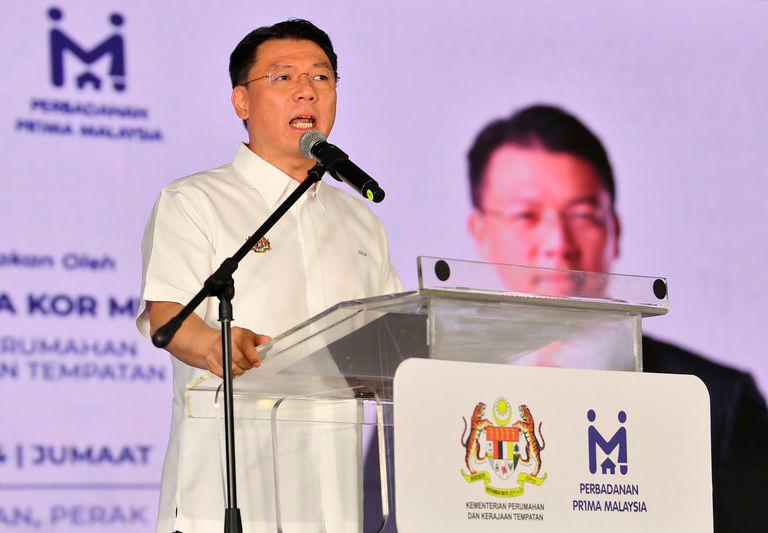KUALA LUMPUR: The Ministry of Housing and Local Government today launched the Circular Economy Blueprint for Solid Waste in Malaysia (2025-2035), which provides direction for stakeholders in institutionalising necessary transformation to advance the circular economy’s development.
Minister Nga Kor Ming said the blueprint will help accelerate the transition to a circular economy in solid waste management via five pillars - governance and legislation, guidelines and procedures, digitisation and technology, infrastructure and facilities, and market creation.
“The government will carry out comprehensive engagement and the drafting of specific legislation related to the circular economy that includes the implementation of Extended Producer Responsibility (EPR), which is an important catalyst of circular economy for sustainable solid waste management.
“The blueprint also aims to introduce a ‘Zero Waste to Landfill Certification’ in solid waste management which recognises manufacturers managing to enhance their resource efficiency and minimise waste generation, which can also be used as a measure to determine the producer’s eligibility for incentives related to circular economy,“ he said in his keynote address at the blueprint’s launching ceremony here.
Also launched simultaneously was the Circular Economy Conference 2024: Building a Sustainable Future, which convened 400 stakeholders from government agencies, industry leaders, NGOs and academics to share their knowledge, perspectives and experiences on advancing the circular economy, with a focus on the solid waste sector.
Nga said in addition, the solid waste management industry has been proposed to establish a National Circular Economy Association (NCEA) to serve as a platform to coordinate, plan and drive circular economy initiatives more comprehensively in Malaysia.
He added that if established, the NCEA will work closely with the Circular Economy Council for Solid Waste (NCEC) at the national level and play a vital role in advancing the country’s recycling industry and solid waste-based industries.
“Malaysians are also expected to benefit from the circular economy initiatives outlined in the blueprint, which can potentially expand the service sector, thereby creating job opportunities and additional income,“ he said.
Meanwhile, when met by reporters after the programme, Nga said the government aims to reach the National Recycling Rate of 40 per cent by 2025.
He said KPKT will be arranging a meeting soon with major retailers in the country, including 7-11, 99 Speedmart and Mynews.com to discuss the matter.
“I’m confident that there’ll be good news (from the meeting). We’ll make an announcement when it’s done,“ he said.
According to Nga, the National Recycling Rate has more than doubled, reaching 35.38 per cent last year compared to 15.7 per cent in 2015.









